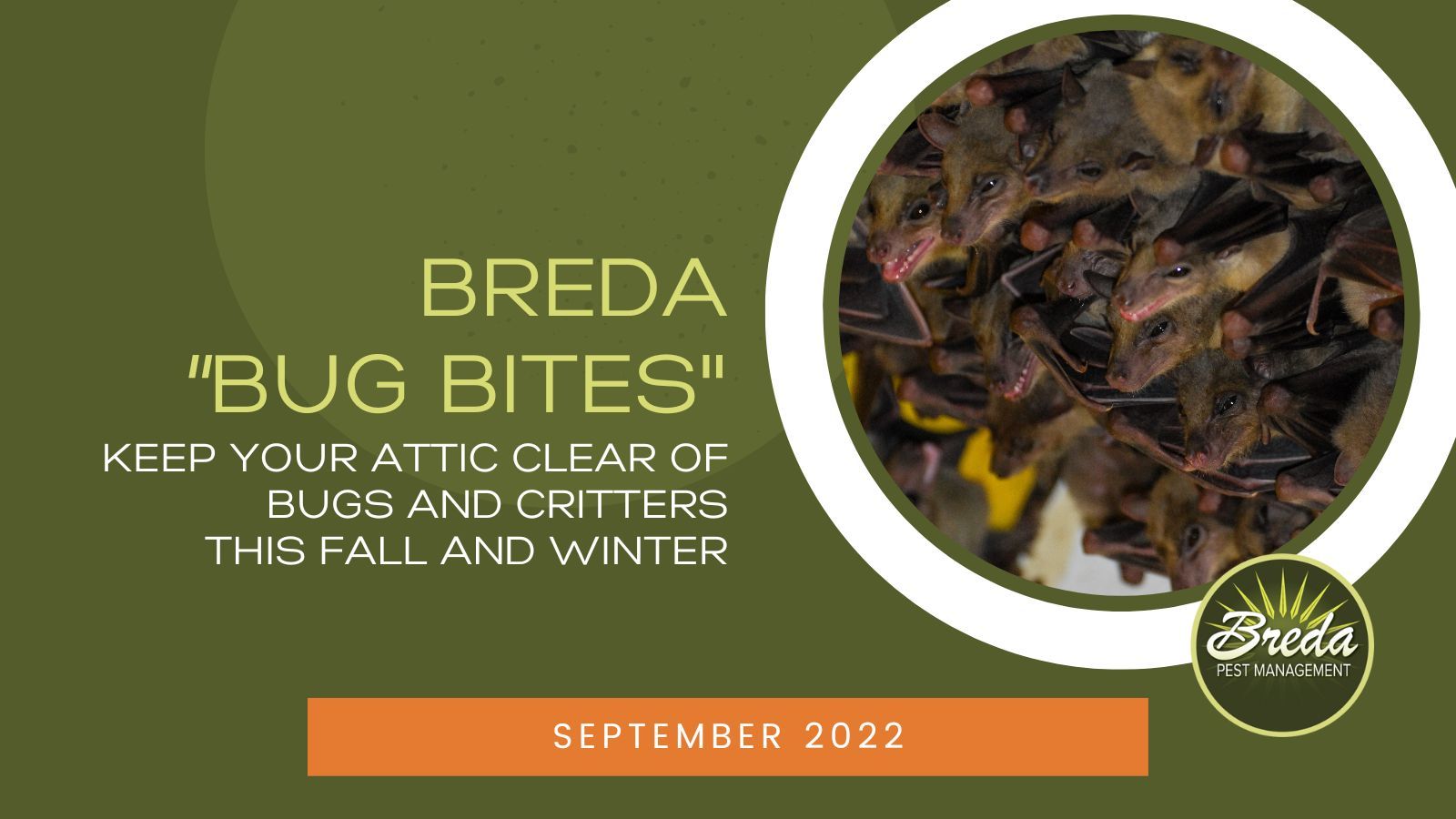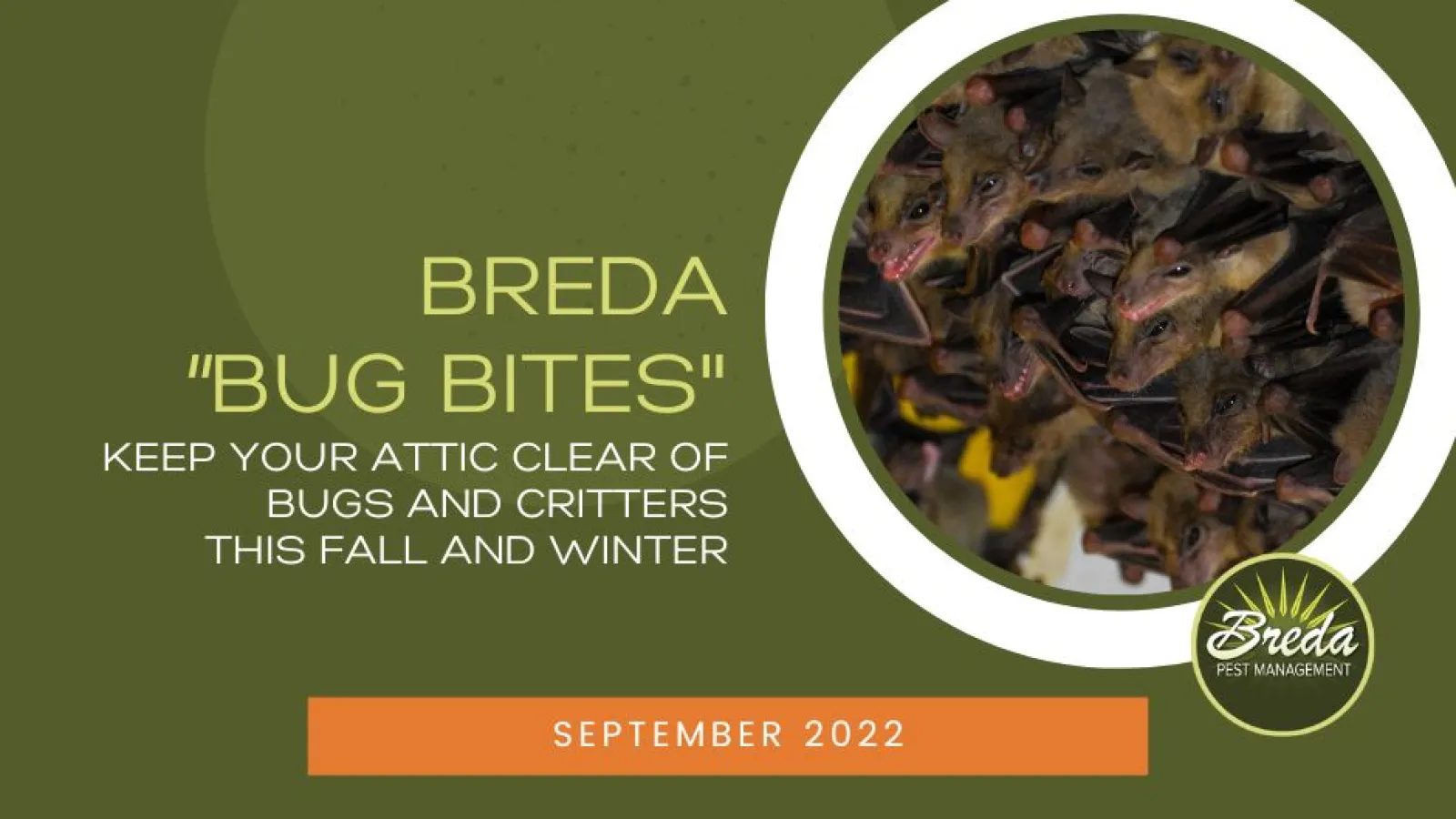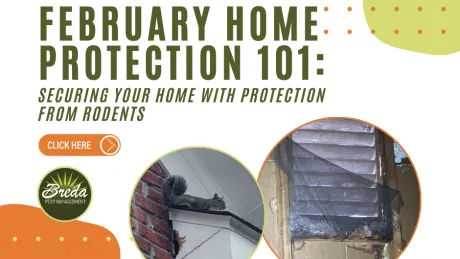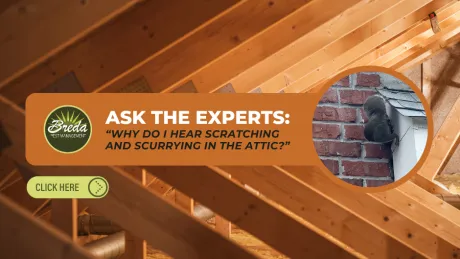
September is here which means the end to the Georgia heat is near! While you won't have to worry about your utility bill as much now, it doesn't mean it's time to stop worrying about bugs and critters. We are getting ready to trade mosquitoes and wasps for stink bugs and rodents. So how do you keep your home (specifically your attic) clear of bugs and critters this fall and winter? We are so glad you asked! Here are some little-known facts to help you understand what you're guarding your home against.
Did you know that stink bugs are most active indoors in the fall?
It still feels like summer is lingering on in Georgia, but stink bugs are already on the hunt for a warm and protected place to overwinter. Due to the calls already coming in for help with stink bug problems, we have a feeling this will be a bad year for these infamous pests. Stink bugs are a tricky pest to control, because you don't want to squash it and they can quickly fly away to evade you. Stink bugs don't have many natural predators either, so their numbers can grow relatively unencumbered.
If stink bugs decide to seek refuge in your house this fall and winter, they will enter into diapause, which means they will not be awake or active enough to reproduce. However, stink bugs will emit a different odor that will signal that your house is a warm spot to ride out the fall and winter cold. This means lots of stink bugs. If you are already spotting stink bugs in or around your home, schedule a service visit with a BREDA technician!
Did you know that bats can live for more than 30 years?
That's a pretty impressive feat for an animal! It's also plenty of time for bats to figure out the best places to roost, which might spell trouble for your home's attic as colder months approach. All bats are capable of flight this time of year, so they will start their hunt for warm and dry places to cozy up. Now, there are definitely worse pests you could have in or around your home. Bats are resourceful outdoor pest controllers (they can eat their body weight in bugs every day!) and don't necessarily cause any damage to your home.
But there is something about bats that makes them dangerous to have around: their guano. That's a fancy word for fecal matter. Bat guano will pile up, since bats don't usually get indoors and fly around everywhere. These piles of bat poop are the perfect breeding ground for a wide variety of bacteria and viruses, especially an infectious disease called histoplasmosis. (Read more about that here)
Did you know that a squirrel's front teeth never stop growing?
If you're a parent or have been around babies and toddler at some point, you know how stressful the teething stage can be. Now imagine that not only did teething never stop but BITING became necessary to function? Thankfully, that's not a problem humans will ever have to deal with, but it is a burden some rodents like squirrels have to bear. We aren't excusing rodents' penchant for chewing anything and everything but perhaps this will give you some perspective on why you find some many chewed things when you have a rodent around.
As the weather starts to cool, rodents like squirrels, mice, and rats will be looking for warm places to build nests that will get them and their families through the cold months. Some of the early warning signs that you have a rodent problem in your attic are scattered droppings, piles of fabric, paper, or insulation that have been used for nesting, and chewed or frayed wires, wood, or cardboard boxes. If you want to avoid the headache of dealing with a rodent infestation this year, we've created a downloadable guides on how to protect your attic from squirrels and how to protect your attic from rats and mice.
If you find yourself needing pest control and want it handled thoroughly, don't hesitate to give us a call. The BREDA Guarantee promises to fix your pest problem and keep it fixed—no matter the circumstances. Schedule a consultation online or give us a call at 770-466-6700.



